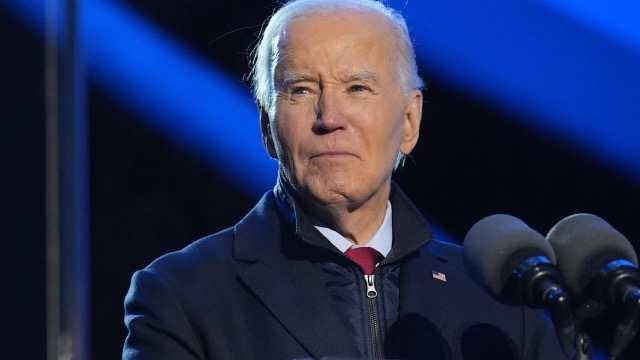A year ago today, on July 21, 2024, former President Joe Biden shocked the nation by announcing he would withdraw from the presidential race—marking the first time in nearly six decades that a major candidate had exited mid-campaign.
The announcement followed Biden’s widely criticized debate performance against now-President Donald Trump on June 27, 2024, where he appeared to struggle with basic questions. Under mounting pressure from within the Democratic Party, Biden eventually stepped aside, sparking a series of dramatic developments in the 2024 election cycle.
“The way Biden handled his infirmity and his reluctant exit from the race will be devastating for his legacy,” said Tevi Troy, a presidential historian and former deputy secretary of Health and Human Services under President George W. Bush. “While Biden was once known as the person who slayed the dragon that Democrats see as Trump, he will now forevermore be known as the person who allowed the dragon to return.”
Initially resistant to the idea of stepping down, Biden, along with his campaign and White House staff, insisted he would remain in the race. But following pleas from key Democrats, including former Sen. Jon Tester and Sen. Joe Manchin, Biden released a statement saying he believed “it is in the best interest of my party and the country for me to stand down and to focus solely on fulfilling my duties as President for the remainder of my term.”
In the aftermath, Biden endorsed Vice President Kamala Harris as his replacement in the race.
“I think it’s very difficult to separate the fact that he bowed out from the fact that he did so belatedly and only after his disastrous debate performance,” said Alex Keyssar, a professor of history at Harvard Kennedy School. “That is true now and will also be true for his legacy for quite a while.”
“He is seen as someone who made an enormous mistake—remaining as a candidate when he could have withdrawn six months earlier—and a mistake that may well have cost his party the presidential election,” Keyssar added.
While it’s rare for incumbent presidents to decline a reelection bid, it’s even rarer for them to do so in the midst of a campaign. Biden’s decision marked the first such move since Lyndon B. Johnson in 1968.
“Harry Truman and Lyndon Johnson both pulled out of reelection efforts in late March,” said Troy. “Joe Biden did it in late July, throwing the Democratic Party into turmoil.”
Troy added that, “While incumbents generally have the advantage in running for reelection, the history of incumbent parties after the incumbent chooses to drop out late is not great: Truman’s, Johnson’s, and Biden’s party lost in each of the elections in question.”
Biden’s departure has since become a focal point of political analysis, with several books published on his final days in office, the reported decline in his cognitive abilities, and internal Democratic Party divisions. Multiple investigations on Capitol Hill are also underway, including an inquiry by the House Oversight Committee into alleged efforts to conceal Biden’s mental decline and possible unauthorized executive actions during his presidency.
According to Gallup, Biden’s presidential approval peaked at 57% between January and April 2021, but fell to just 36% by July 2024.
Still, Keyssar suggested Biden’s long-term legacy may improve. “As an historian, looking further into the future, I can imagine that his legacy will become more positive, as historians and other analysts focus more on his achievements in office and his basic decency as a person,” he said.
 Telegram is where we really talk. Don't miss out!
Telegram is where we really talk. Don't miss out!








